October 4, 2021
The Call for Proposals is closed. Below are tentative schedules for the virtual Forum event on May 18 and 19 and the in-person Forum in Pittsburgh on May 25 and 26.
Virtual Preconference, Online, May 18
12:00pm – 12:15pm | Welcome and Opening Remarks
12:15pm – 1:15pm | Keynote address by Janne Pölönen, Secretary General, Publication Forum, Federation of Finnish Learned Societies  [video]
[video]
1:15pm – 1:30pm | Break
1:30pm – 2:30pm | Concurrent Sessions
FULL SESSION
Inclusive Approaches to Open Access monograph funding: beyond the book processing charge  [video]
[video]
Professor Martin Paul Eve, COPIM Opening the Future lead, & Birkbeck (University of London); Dr Judith Fathallah, COPIM Open Book Collective, & Lancaster University; Rupert Gatti, Open Book Publishers; Lidia Uziel, COPIM & Associate University Librarian for Research Resources and Scholarly Communication, UC Santa Barbara
FULL SESSION
Assessing Library Publishing Programs
Johanna Meetz, The Ohio State University; Ellen Dubinsky, University of Arizona
2:30pm – 2:45pm | Break
2:45pm – 3:45pm | Concurrent Sessions
FULL SESSION
Where are all the books? Why OA ebook authors don’t get the recognition they deserve and how we can fix the situation  [video] [slides]
[video] [slides]
Rebecca Bryant, Senior Program Officer, OCLC Research Library Partnership; Terri Geitgey, Program Manager, Lever Press; Jeff Edmunds, Digital Access Coordinator, Penn State University Libraries
PANEL
Our first publishing project: Lessons learned about ourselves and our work  [video]
[video]
Donna Langille, Community Engagement and Open Education Librarian, University of British Columbia Okanagan; Amanda Brobbel, Senior Manager, Writing & Language Learning Services, University of British Columbia Okanagan
Identifying Smaller Publishers with Values-Aligned Practices through Library Partnership Certification  [video]
[video]
Rachel Caldwell, Scholarly Communication Librarian, University of Tennessee; Robin N. Sinn, Director of Collections and Open Strategies, Iowa State University
Critique of “Transformative” Reasons  [video]
[video]
Brianne Selman, University of Winnipeg
3:45pm – 4:00pm | Break
4:00pm – 5:00pm | Concurrent Sessions
FULL SESSION
NGLP: Pilot implementations have launched!  [video]
[video]
Kate Herman, NGLP; Dave Pcolar, NGLP; Andy Byers, Janeway; Catherine Mitchell, CDL; Clay Farr, Longleaf Services
PANEL
Houghton St Press: Student-led publishing at the London School of Economics  [video]
[video]
Lucy Lambe, Scholarly Communications Officer, LSE Library, London School of Economics and Political Science
Leveraging the flexibility of library publishing to deliver an accessible, media-rich ultrasound field guide to the world  [video]
[video]
Michael Schick DO, UC Davis Health; Rebecca Stein-Wexler MD, UC Davis Health; Yamilé Blain, University of Miami Health System; Justin Gonder California Digital Library
Can THAT have an ISSN? A guide to the wide range of resources covered by ISSN  [video]
[video]
Regina Romano Reynolds, director of the U.S. ISSN Center, Library of Congress
Virtual Preconference, Online, May 19
12:00pm – 1:00pm | Keynote address by Dr. Jane Anderson, NYU, co-director, Local Contexts  [video]
[video]
1:00pm – 1:15pm | Break
1:15pm – 2:15pm | Concurrent Sessions
FULL SESSION
Openness is not enough: Dismantling structural inequities on our quest for public knowledge
Kate Shuttleworth, Public Knowledge Project and Simon Fraser University; Amanda Stevens, Public Knowledge Project; Patricia Mangahis, Public Knowledge Project
PANEL
Out in the Open: Launching a Diamond Open Access Book Hosting Service  [video]
[video]
Rebecca Wojturska, University of Edinburgh
Swift: A Case Study in Publishing Fiction  [video]
[video]
Maria Aghazarian, Scholarly Communications Librarian, Swarthmore College (she/her); Braulio Muñoz, Professor Emeritus of Sociology, Swarthmore College (he/him)
Book Publishing by University Libraries in Brazil  [video] [slides]
[video] [slides]
Lucas dos Santos Souza da Silva, Bachelor’s degree on Library Science, Federal University of the State of Rio de Janeiro (UNIRIO); Dayanne da Silva Prudencio. Professor of the Library Science Department, Federal University of the State of Rio de Janeiro
2:15pm – 2:30pm | Break
2:30pm – 3:30pm | Concurrent Sessions
FULL SESSION
Inclusion and Representation in the Scholarly Ecosystem
Caitlin Tyler-Richards, Michigan State; Lea Johnston, Editorial, Getty Research Institute (GRI) Publications; Elizabeth Scarpelli, University of Cincinnati Press (Moderator)
PANEL & LIGHTNING TALKS
The BCcampus Open Publishing Suite: Guides for Your Open Publishing Initiative  [video]
[video]
Arianna Cheveldave, BCcampus; Kaitlyn Zheng, BCcampus
Introducing Lantern: A Multiformat OER Publishing Toolkit  [video]
[video]
Chris Diaz, Digital Publishing Librarian, Northwestern University; Lauren McKeen McDonald, Open Education Librarian, Northwestern University
Lightning Talks
- Can a Monthly Newsletter Increase Journal Publishing Best Practices?
 [video] | Kate Cawthorn, Digital Projects Librarian, University of Calgary Libraries and Cultural Resources
[video] | Kate Cawthorn, Digital Projects Librarian, University of Calgary Libraries and Cultural Resources
- Success, Failures, and the In-Between: Reflecting on a medical-student operated open access journal as it passes its third year in operation
 [video] | Benjamin Saracco, Research and Digital Services Faculty Librarian, Cooper Medical School of Rowan University; Amanda Adams MLS, Reference & Instruction Faculty Librarian, Cooper Medical School of Rowan University
[video] | Benjamin Saracco, Research and Digital Services Faculty Librarian, Cooper Medical School of Rowan University; Amanda Adams MLS, Reference & Instruction Faculty Librarian, Cooper Medical School of Rowan University
- Synchronizing the Asynchronous: Working through the Library Publishing Workshop as a Cohort
 [video] [slides] | Jill Cirasella, The Graduate Center, City University of New York; Gail Steinhart, Cornell University
[video] [slides] | Jill Cirasella, The Graduate Center, City University of New York; Gail Steinhart, Cornell University
- Inclusive Language in NIST Technical Series Publications
 [video] [slides] | Kathryn Miller, National Institute of Standards and Technology
[video] [slides] | Kathryn Miller, National Institute of Standards and Technology
3:30pm – 3:45pm | Break
3:45pm – 4:45pm | Concurrent Sessions
FULL SESSION
A library publisher, library consortium and library journal walk into a bar: A case study of adopting collaborative funding infrastructure to support library publishing  [video]
[video]
Curtis Brundy, Iowa State University; Harrison W. Inefuku, Iowa State University; Sharla Lair, LYRASIS
FULL SESSION
The scoop on XML article-level metadata and why it’s critical to equitable research dissemination  [video]
[video]
Alice Meadows, Director of Community Engagement at NISO; Brian Cody, Co-Founder and CEO of Scholastica
4:45pm – 5:00pm | Closing Remarks
In-person Library Publishing Forum, Pittsburgh, May 25
7:30am – 5:00pm | Registration
7:30am – 8:30am | Breakfast [Ballroom]
8:30am – 9:00am | Welcome and Opening Remarks [Ballroom]
9:00am – 10:00am | Keynote address by Christen Smith, Associate Professor of African and African Diaspora Studies and Anthropology, University of Texas at Austin [Ballroom]  [video] [slides]
[video] [slides]
10:00am – 10:30am | Break
10:30am – 11:30am | Concurrent Sessions
FULL SESSION [Ballroom]
Let’s Talk! Building Library Support for Scholarly Societies Publications
Emma Molls, University of Minnesota; Lauren Collister, University of Pittsburgh; Harrison W. Inefuku, Iowa State University
PANEL [Dining Room A]
Let’s talk about academic labour: Changes in the academy and independent scholarly publishing
Jessica Lange, McGill University; Sarah Severson, University of Alberta
Should library publishers offer plagiarism screening? A pilot project at York University Libraries
Tomasz Mrozewski, Digital Publishing Librarian, York University
11:30am – 11:45am | Break
11:45am – 12:45pm | Concurrent Sessions
FULL SESSION [Ballroom]
Strategic Career Management [slides and other materials]
John W. Warren, Director and Associate Professor MPS in Publishing, George Washington University; Additional speakers TBD
FULL SESSION [Dining Room A]
Multimodal Monographs: Content, Collaboration, Community  [video] [slides]
[video] [slides]
Allison Levy, Digital Scholarship Editor, Brown University; Sarah McKee, Senior Associate Director for Publishing, Emory University
12:45pm – 1:45pm | Lunch [Ballroom]
1:45pm – 2:30pm | Tours/Unscheduled networking time
2:30pm – 3:30pm | Concurrent Sessions (part 1)
WORKSHOP 1: A Focus Group on In-Progress Revisions to the Library Publishing Curriculum [Ballroom]
Cheryl E. Ball, moderator. Other Curriculum Board members TBA
WORKSHOP 2: Getting Started with Library Publishing Workflow Documentation [Dining Room A]
Katherine Skinner, Educopia Institute; Brandon Locke, Educopia Institute
WORKSHOP 3: Your Input Needed – An Interactive Session to Improve Usability and Findability of OJS Documentation [Dining Room B]
Mariya Maistrovskaya, Digital Publishing Librarian, University of Toronto Libraries; Amanda Stevens, Associate Director of Publishing Services and Support, Public Knowledge Project
3:30pm – 4:00pm | Break
4:00pm – 5:00pm | Concurrent Sessions (part 2)
WORKSHOP 1 (continued): A Focus Group on In-Progress Revisions to the Library Publishing Curriculum
WORKSHOP 2 (continued): Getting Started with Library Publishing Workflow Documentation
WORKSHOP 3 (continued): Your Input Needed – An Interactive Session to Improve Usability and Findability of OJS Documentation
6:00pm – 7:30pm | Reception [William Pitt Union Lower Lounge]
In-person Library Publishing Forum, Pittsburgh, May 26
7:30am – 5:00pm | Registration
7:30am – 8:30am | Breakfast [Ballroom]
8:30am – 8:45am | Welcome and Opening Remarks [Ballroom]
8:45am – 9:45am | Labor Panel | Marcia Rapchak, University of Pittsburgh; Chloe Mills, Robert Morris University; Rachel Masilamani, Carnegie Library of Pittsburgh; Lauren B. Collister, University of Pittsburgh (moderator) [Ballroom]
9:45am – 10:15am | Break
10:15am – 11:15am | Concurrent Sessions
PANEL [Ballroom]
What it takes: Successful Open Publishing Programs  [video] [slides]
[video] [slides]
Amy Song, Pressbooks
Conversations with OER Creators: Advice for Accessibility  [video] [slides]
[video] [slides]
Elena Azadbakht, Health Sciences Librarian, University of Nevada Reno; Teresa Schultz, Social Sciences Librarian, University of Nevada, Reno
FULL SESSION [Dining Room A]
Discussion of University-based Publishing Infrastructure Virtual Convening
Ally Laird, Penn State University
11:15am – 11:30am | Break
11:30am – 12:30pm | Concurrent Sessions
FULL SESSION [Ballroom]
Maturing Our Program: Criteria for Selection, Content Advisories, and Celebrating Great Work [slides]
Laurie Taylor, University of Florida; Perry Collins, University of Florida; Chelsea Johnston, University of Florida; Tracy MacKay-Ratliff, University of Florida
FULL SESSION [Dining Room A]
Stepping Onto the Platform: Reflections on Michigan Publishing’s Switch to Janeway for OA Journal Publishing
Andy Byers, Senior Publishing Technologies Developer, Birkbeck, University of London/Open Library of Humanities; Jason Colman, Director, Michigan Publishing Services, University of Michigan Library; Mauro Sanchez, Senior Publishing Technologies Developer, Birkbeck, University of London/Open Library of Humanities; Lauren Stachew, Senior Digital Publishing Coordinator, Michigan Publishing Services, University of Michigan Library
12:30pm – 1:30pm | Lunch/LPC Members Meet-up [Ballroom]
1:30pm – 2:15pm | Birds of a Feather/Table Topics TBD [Ballroom]
2:15pm – 2:30pm | Break
2:30pm – 3:30pm | Concurrent Sessions
PANEL [Ballroom]
Student Journal Forum: From a local event to a Canada-wide movement  [video] [slides]
[video] [slides]
Mariya Maistrovskaya, University of Toronto Libraries; Sarah Severson, University of Alberta Library
Using Open Access Publishing to Promote Undergraduate Research  [video] [slides]
[video] [slides]
Brett Say, Director of Honor Research Programs, University of Pittsburgh Honors College; Angel Zheng, Undergraduate Student, University of Pittsburgh Honors College; Corey Schultz, Undergraduate Student, University of Pittsburgh Honors College; Samantha Kirschman, Undergraduate Student, University of Pittsburgh Honors College
PANEL [Dining Room A]
Making Open Access Books Work: A Library-Press Partnership Perspective  [video] [slides]
[video] [slides]
Emma Vecellio, Library Relations Manager, Michigan Publishing, University of Michigan Library
The Challenge of Disseminating Metadata on Library Published, Open-Access Books  [video][slides]
[video][slides]
Vincent W.J. van Gerven Oei, co-director, punctum books; COPIM (Community-led Open Publication Infrastructures for Monographs)
3:30pm – 4:00pm | Break
4:00pm – 5:00pm
PLENARY SESSION [Ballroom]
NGLP: Building in the Open, Building Together
Katherine Skinner, NGLP; Dave Pcolar, NGLP; Kate Herman, NGLP
5:00pm – 5:15pm | Closing Remarks [Ballroom]


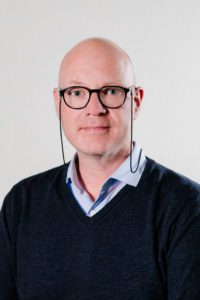
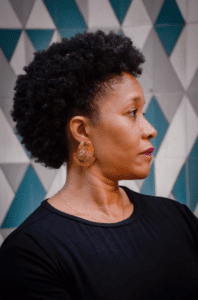 Christen Smith, Founder of
Christen Smith, Founder of 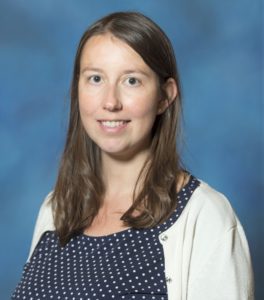 Marcia Rapchak, University of Pittsburgh
Marcia Rapchak, University of Pittsburgh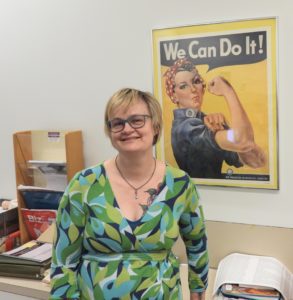 Chloe Mills, Robert Morris University
Chloe Mills, Robert Morris University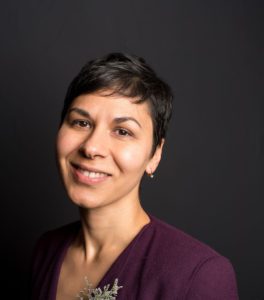 Rachel Masilamani, Carnegie Library of Pittsburgh
Rachel Masilamani, Carnegie Library of Pittsburgh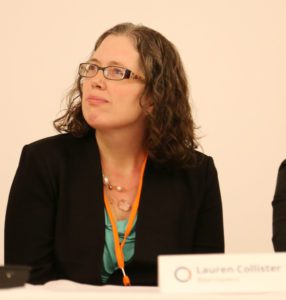 Lauren B. Collister, University of Pittsburgh (moderator)
Lauren B. Collister, University of Pittsburgh (moderator)